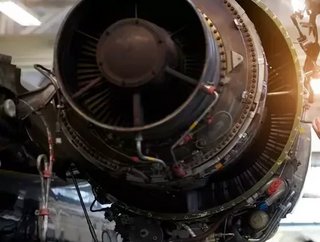Aviation: are nanoscale materials the cure for emissions?

The University of Sheffield Advanced Manufacturing Research Centre (AMRC) announces its partnership with 16 industrial partners on the MASTRO project furthering its involvement in Horizon 2020.
The MASTRO project
“There are three sections within MASTRO: automotive, infrastructure and aerospace; and the AMRC is leading the aerospace section of the project alongside Embraer. We’re developing three main technologies: self-cure, self-anti-icing and self-sensing,” commented Matthew Collinson, Research Engineer in the AMRC Composite Centre.
As part of the project, the AMRC team are working to develop materials via the integration of carbon nanotubes to turn into smart products. As aviation transitions to electrification, the technologies are centred on the electrically conductive nature of the composite structure.
“For the first year-and-a-half we’ve been working on developing the materials and so the next stage is developing the smart demonstrators. Now we’ve reached a point where we can build a section of a composite leading-edge wing – to show off the self-cure, self-anti-icing and self-sensing we have developed,” added Collinson.
MASTRO projects overall objective is to develop intelligent bulk materials that incorporate self-responsive properties to increase consumer safety, component life-span and performance, as well as reducing maintenance, manufacturing costs, and through-life greenhouse gas emissions.
The impact of COVID-19
Whilst COVID-19 has caused work on the MASTRO project to slow down briefly over the summer, the project plans to conduct a physical demonstration imminently.
“We started the latest work package at the start of 2020, which was making the two demonstrators – which have slightly different properties, then finishing the design and starting to manufacture. We have been delayed but we have now manufactured our first self-curing, self-anti-icing and self-sensing part and can start testing very soon,” commented Collinson.
For more information on manufacturing topics - please take a look at the latest edition of Manufacturing Global.
- GE Vernova moves to Electrify and Decarbonise the WorldTechnology
- GTK: IoT, Sustainability & Touchscreen Tech in ManufacturingAI & Automation
- The Impact of NCSA on Manufacturing & the Supply ChainProcurement & Supply Chain
- Grundfos' Sustainable Manufacturing & Energy EfficiencySustainability & ESG






